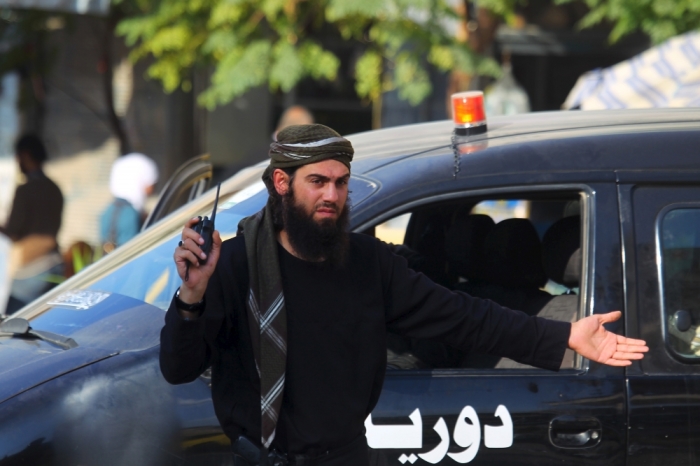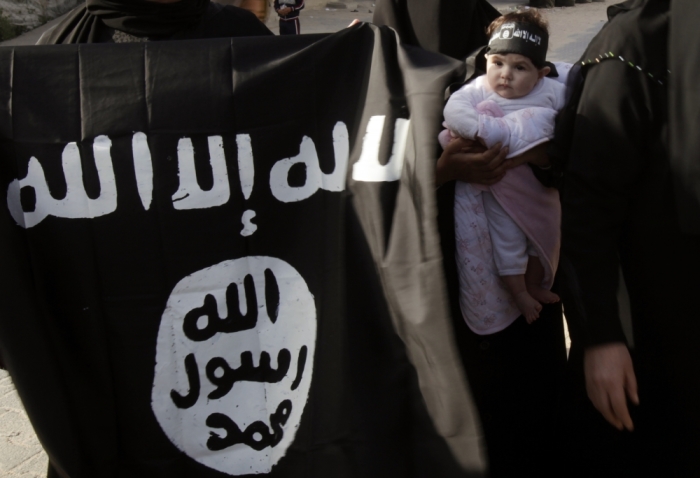Palestinians Most Sympathetic Toward ISIS, Survey Finds

A large survey of attitudes and opinions held by people in several Arab states have found that Egyptians and Palestinians are the most sympathetic toward the Islamic State. Among Syrian refugees, 13 percent expressed support for the terror group.
The Arab Center for Research and Policy Studies, which released its findings this month, carried out a public opinion poll of 600 respondents in the countries of Tunisia, Egypt, Palestine, Jordan, Saudi Arabia, Lebanon and Iraq, as well as a sample of 900 Syrian refugees based in camps in Lebanon, Jordan and Turkey.
While the vast majority, or 72 percent of all respondents said that they have an overall negative view of IS, which has captured territory across Iraq and Syria, the militant group found small pockets of support — overall 4 percent of all respondents said they have a positive view of IS, and 7 percent said "positive to some extent."
The level of support specifically from the Syrian refugee group was slightly higher than average, however, with 13 percent in total expressing a sympathetic view toward the terror group.
Respondents to the survey from Lebanon were most firmly opposed to IS, with as much as 98 percent of people declaring their opposition to the group. Palestine, on the other hand, had the most support for IS, with as much as 24 percent suggesting sympathetic views.
The survery also found that 50 percent of Palestinians are "opposed Arab participation in the coalition to 'degrade and ultimately destroy" ISIL.' This was followed by Egypt, where 40 percent were opposed to Arab countries' participation in the military strikes against targets in Iraq and Syria."
Similarly, "63 percent of Egyptians and 53 percent of Palestinians did not view ISIL as a direct
threat against their home counties."

A total of 63 percent of Arab respondents said they found IS a direct threat to the security and stability of their home countries, while 33 percent said that they do not feel such a threat.
In the other survey questions, the Arab populations expressed somewhat mixed views on the airstrikes operations carried out by the U.S., other Western nations, and a host of Arab countries against terror targets in Syria.
A majority of respondents, or 73 percent, expressed a negative view of U.S. foreign policy toward the Arab region, however, while only 20 percent found it positive.
Millions of the Syrian refugees who are at the refugee camps are hoping to make their way toward Western states, creating debate and division among European nations as to how many should be welcomed and how they should be treated.
German Chancellor Angela Merkel has promised to welcome as many as 800,000 refugees from Syria and other Middle Eastern countries fleeing terrorism and civil war, but at least one Jewish group has expressed concerns that some of the coming refugees might stir anti-Semitism.
Leaders from the Central Council of Jews in Germany warned in October that many refugees "come from countries in which Israel is viewed as the enemy" and that "these prejudices are often projected onto Jews in general."
Merkel, who heads the Christian Democratic Union party, has vowed that the country will battle anti-Semitism "resolutely."
Some major Christian churches, such as the Church of England, have stood up to their government and demanded that more refugees are welcomed in.
CofE bishops released a letter to U.K. Prime Minister David Cameron back in September, calling on the number of refugees welcomed in the net five years to the nations be increased from 20,000 to 50,000.
"From what we see in congregations across the United Kingdom we are confident that the country stands ready and willing to support the government to be even more ambitious as it responds to this historic crisis," the letter promised.




























